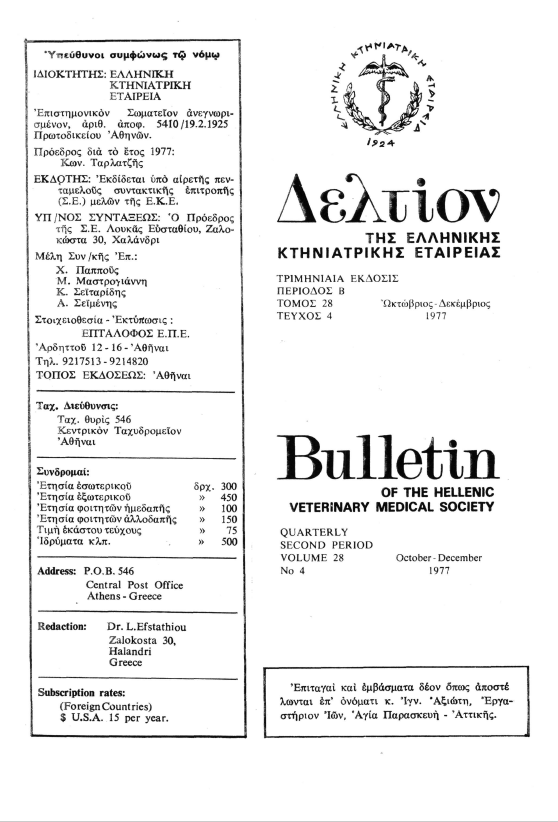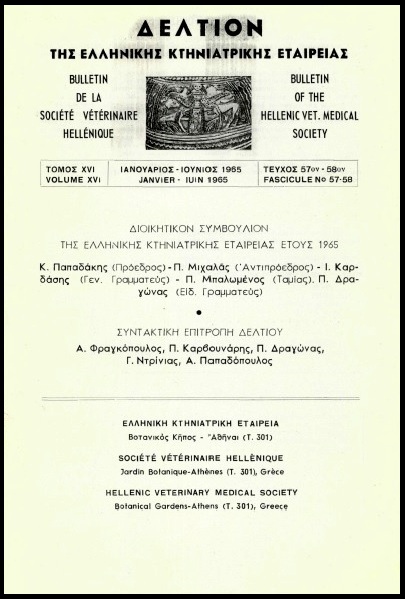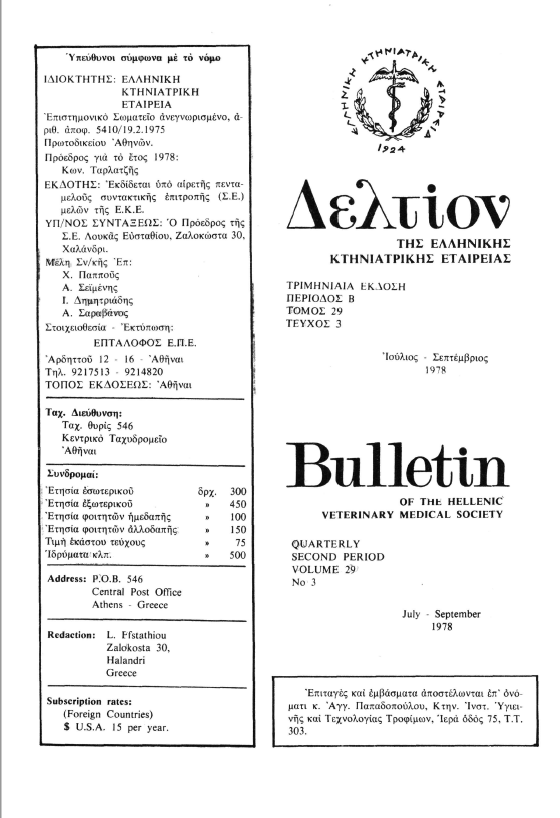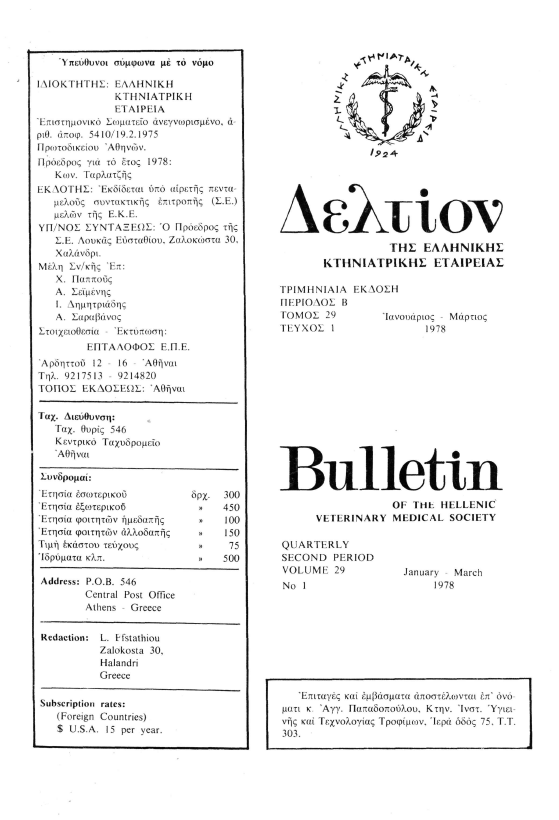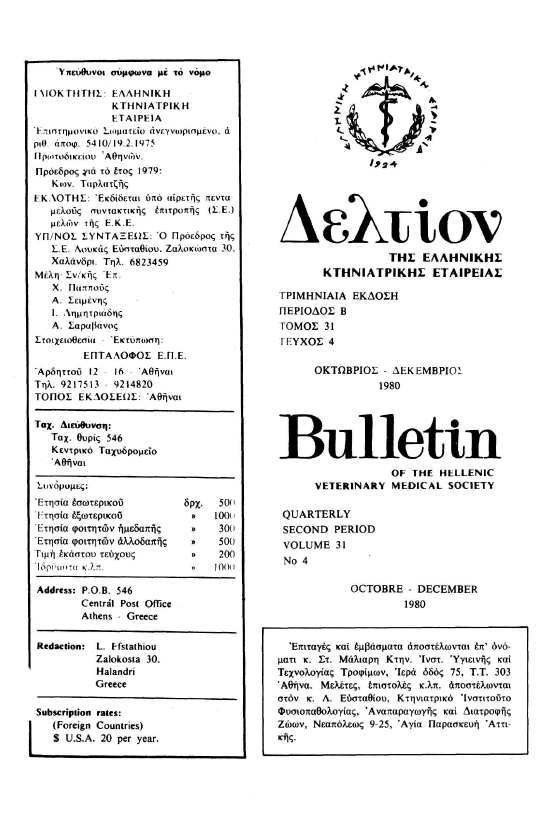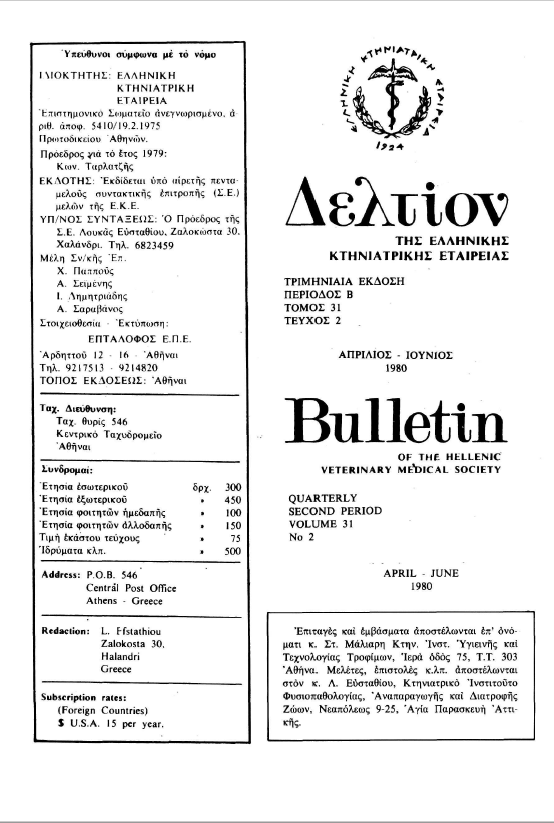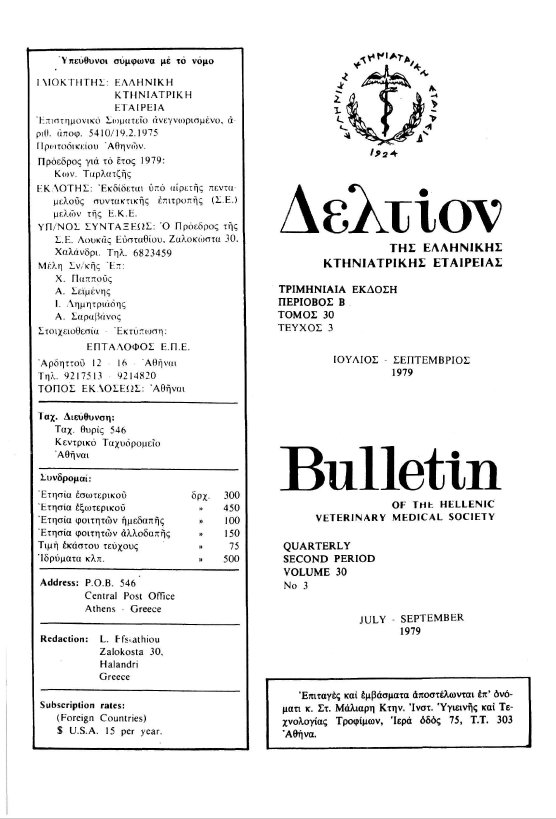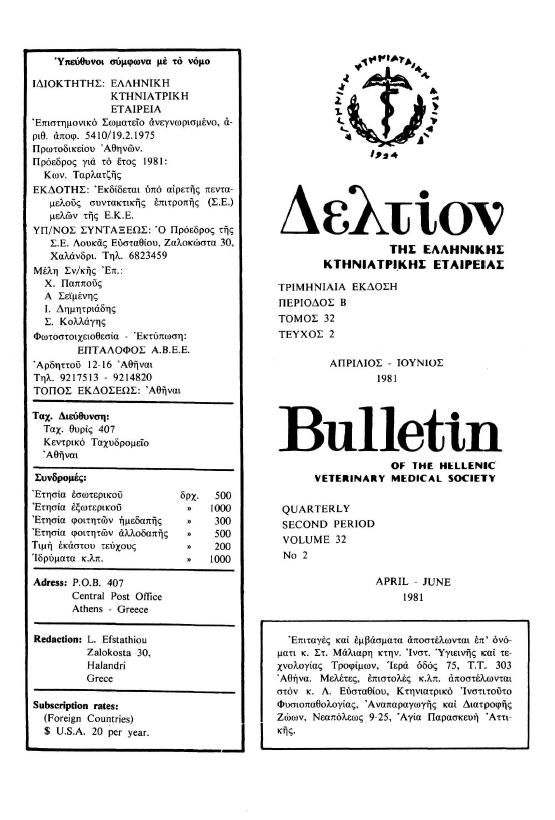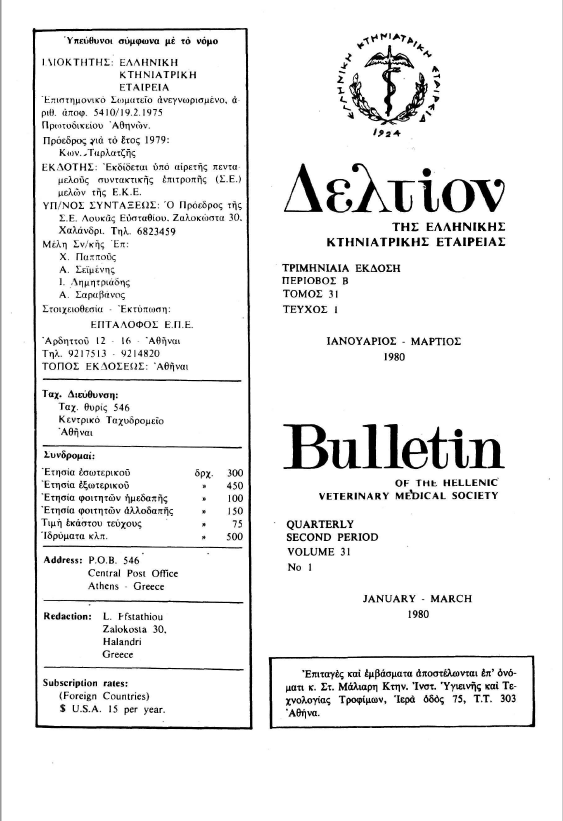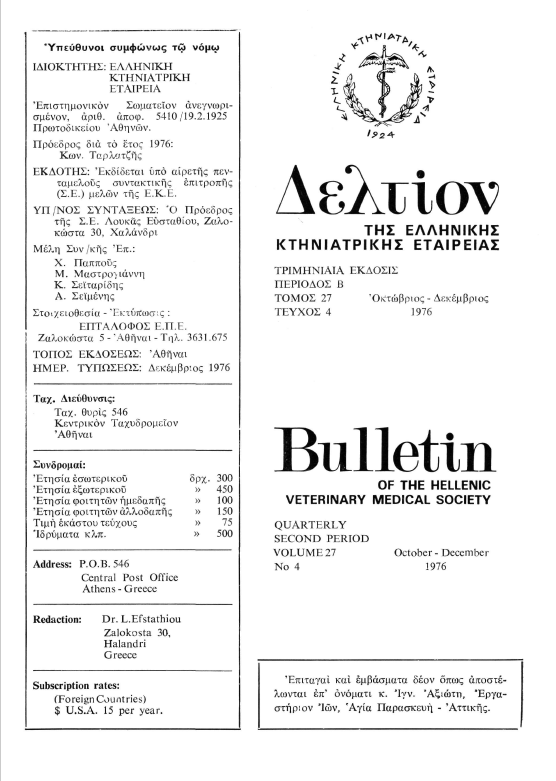The Veterinary Profession in Greece. Review of the Present and Prospects for the Future. III. Veterinary Education: A. Schools
Abstract
The strident advances in science and technology, generally, brought with them new reponsibi lities for improving the quality of education in order to permit ready response to newly created needs and conditions. In Greece, the task of educating aspirants in the veterinary field is carried out by one single institution the Veterinary School at the University of Thessaloniki. Obviously, then, admission to the Veterinary School must, of necessity, be highly selective. A comparison is made herein of the selection process used in Greece with that used in the United States. Remarks are also included on the administration of the Veterinary School in Thessaloniki and on the selection and tenure of faculty members. Some suggestions are put forward for the establishment of a selection process, emphasizing not only the academic achievements of the candidate but also his personal attributes and qualities. Discussed also are various ways for improving the education of the veterinary student, incl tiding revising the molecular level, modernizing text books, and utilizing audiovisual aids and computers. Other matters offered for consideration are the increasing of the required period of educational training to at least six years, as well as the requiring of continuing professional education after graduation in order to enable the veterinarian to remain abreast of new scientific developments and techniques. finally, reference is made to the role of the veterinarian in the American university faculties.¨ as well as to veterinary education in some of the Third World Countries and to the burgeoning need for veterinarians ail over the world.
Article Details
- How to Cite
-
ΧΑΤΖΗΟΛΟΣ Β. Κ. (2019). The Veterinary Profession in Greece. Review of the Present and Prospects for the Future. III. Veterinary Education: A. Schools. Journal of the Hellenic Veterinary Medical Society, 28(4), 187–194. https://doi.org/10.12681/jhvms.21314
- Issue
- Vol. 28 No. 4 (1977)
- Section
- Articles

This work is licensed under a Creative Commons Attribution-NonCommercial 4.0 International License.
Authors who publish with this journal agree to the following terms:
· Authors retain copyright and grant the journal right of first publication with the work simultaneously licensed under a Creative Commons Attribution Non-Commercial License that allows others to share the work with an acknowledgement of the work's authorship and initial publication in this journal.
· Authors are able to enter into separate, additional contractual arrangements for the non-exclusive distribution of the journal's published version of the work (e.g. post it to an institutional repository or publish it in a book), with an acknowledgement of its initial publication in this journal.
· Authors are permitted and encouraged to post their work online (preferably in institutional repositories or on their website) prior to and during the submission process, as it can lead to productive exchanges, as well as earlier and greater citation of published work.

